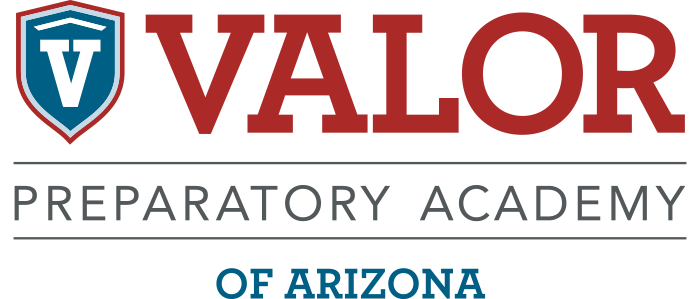 FAFSA: it’s a scary word. How’s it even pronounced? Whatever the answer, the word alone is known to cause headaches and stress. (The answer is F-a-F-Sah, for the record).
FAFSA: it’s a scary word. How’s it even pronounced? Whatever the answer, the word alone is known to cause headaches and stress. (The answer is F-a-F-Sah, for the record).
Of course, receiving free money for college sounds great. That’s not the issue. But the process sounds scary enough that it seems not worth the effort at times.
But it is worth the effort. And while we can’t promise you won’t experience head pains, you can ease your stress by following a few important tips.
Whether you’re student just started high or is on their way out, now’s the time to start planning on financing your post-secondary education.
If you think you can’t afford college, we’re here to say “Yes, you can.”
There are several scholarships your child can earn. And they don’t all require earning straight A’s, or being athletically inclined.
One such “scholarship” is qualifying for financial aid, or money granted to you by the Federal Government by filling out a Free Application for Student Aid (FASFA) form.
This money is granted to college students, and depending on if you qualify, your teen can either get approved for a loan or receive a grant. A grant is money given to you to attend college that you don’t have to pay back.
Here’s what you need to know about FASFA.
Scholarship Versus Grant Versus a Loan
In the simplest terms:
- Scholarship= Free money from a college or other provider
- Grant= Free money from the government
- Loan= Money you have to pay back
Receiving loans through FAFSA can be useful, considering they do not need to be paid while attending college. Keep in mind that interest rates after graduation can be high, and the payments demanding. If you can find grants and scholarships, these will serve your student much better in the long run.
Scholarships are separate from FAFSA. You can obtain scholarships through the college you’re attending. Oftentimes, this is based on grades or talents. You can find several third-party scholarships, however.
Places like scholarships.com or Fastweb.com are great places to start.
Types of Federal Aid Loans
- Direct subsidized loans: for undergraduate students in community college or in a bachelor’s program. Students will not be charged interest until after they are no longer in school.
- Direct unsubsidized loans: for all levels of degrees and interest is charged from the moment the loan is accepted. The interest is typically from 4-6% in Arizona, but is subject to change.
- Direct PLUS loans: for graduate and professional degree students and parents of those students. Interest is charged from the time the loan is accepted by the student or parent.
- Consolidated loans: You can consolidate loans after the student is no longer enrolled in college to make one payment a month rather than several big payments to different loan companies.
Does Income Level Impact FAFSA Approval?

It’s a common misconception that FAFSA only applies to students with low incomes. Although that can be the case, FAFSA is actually determined on your cost ratio.
Colleges want you to contribute about 47% of your net annual income. If the price of tuition/books exceeds that percentage of your ratio, you are granted aid.
So, if your student comes from a lower income, chances are, the percentage of college costs to your total income would be a high ratio.
But that does not mean those who have higher incomes shouldn’t apply. Let’s say, for example, there are two different students whose parents earn the same income, say $100,000, but one student is attending a community college while the other is attending an expensive private university. In this case, the student attending a private university is more likely to receive financial aid. You can learn more about this here.
In other words, regardless of your income, your child should apply for FAFSA. It’s free to apply, and they definitely won’t receive any aid if they don’t try.
Items Needed to Complete FAFSA

- Student’s social security number
- OR Alien Registration number they are not a U.S. Citizen
- Your (the parent’s) most recent Tax Return forms, including W2 forms and any other form of income
How to Apply
- Head to the FAFSA site and start an application
- You will need to create a PIN number. It can be hard to retrieve if you forget, so make it memorable!
- Fill out the entire form using the items above.
For more detailed instructions on the application process, check out this Infographic.
What Can I Use My Child Use Financial Aid For?
- Tuition
- School fees
- Housing
- Food
- Health Insurance
- Books
- Supplies for school
- Transportation expenses
What if My Child Doesn’t Know Where They’re Going to School After Graduation?

If your teen is unsure where they are attending college after graduation, you don’t have to wait to apply. The FAFSA form is the same no matter where you attend. It can make a difference in the amount you receive, but it’s better to apply early than to wait on your decision.
A Few Important Things to Note
-
FAFSA opened October 1 and runs through about June 2020. Any corrections or updates must be submitted by midnight CT on Sept. 14, 2020.
-
The earlier you apply, the better! Students who apply in January are much more likely to receive grants than those in May.
-
Many scholarships require a FAFSA form, so if you plan to apply for any scholarships, be sure to complete your FAFSA form this month.
- School deadlines are usually early in the year often in February or March, although some are even earlier now that the FAFSA form is available in October. ( Learn more here.)
No matter your child’s plans after high school, be sure to take the time to fill out a FAFSA form. It certainly won’t hurt, and can potentially give you free money to use toward your education.
For any questions, you can always reach out to your guidance counselor. They can answer your questions, walk you through the process and develop an action plan with you. The help you need to get funding for college is readily available!

